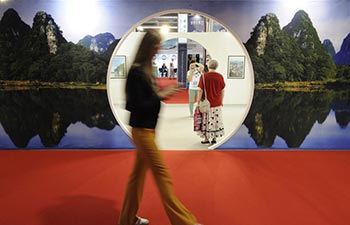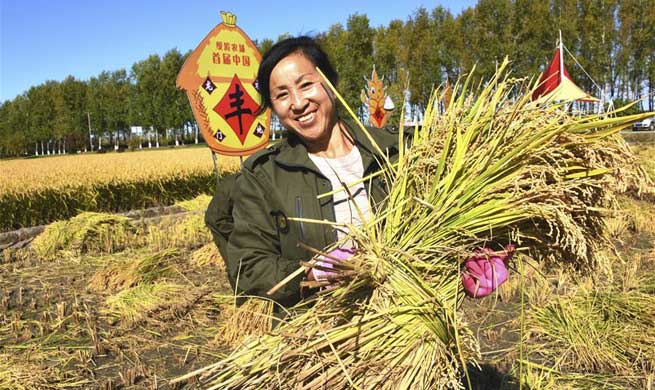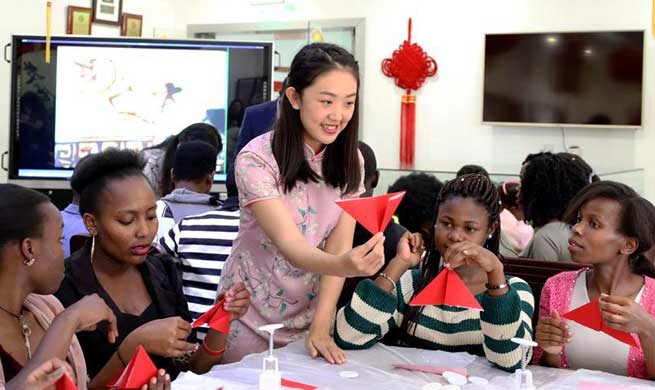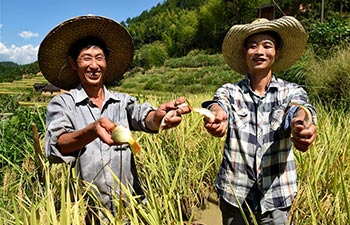CHONGQING, Sept. 21 (Xinhua) -- Zuncheng (Chongqing) Logistics Chain Management Co., which provides international logistics solutions for clients in West China, now offers more price competitive transport.
"Earlier, it took over 30 days for cargo to be shipped downstream on the Yangtze River to Shanghai and then to Southeast Asia," said Yang Ming, president of Zuncheng. "Now it saves about 20 days as goods are first transported to a port in southern Guangxi Zhuang Autonomous Region by train and then shipped to Singapore by sea."
The faster Southern Transport Corridor is an important part of the China-Singapore (Chongqing) Demonstration Initiative on Strategic Connectivity, the third intergovernmental cooperation project between the two countries.
Han Baochang, director of the demonstration initiative's administration bureau, said the regular rail-sea transit route was an international trade logistics passage built by western Chinese inland regions and Southeast Asian countries, including Singapore.
Sept. 25 marks the first anniversary of the route launch. Freight trains had made 268 trips by July and further connected 107 ports in 55 countries and regions.
"The Southern Transport Corridor has become the most convenient way to connect the western Chinese regions by sea and is reshaping the logistics industry," said Li Muyuan from the China Communications and Transportation Association.
Li said earlier that longer and more costly logistics through the eastern route to the sea was one of the bottlenecks that hindered the development of China's western regions.
The Southern Transport Corridor is of bigger significance. The China-Europe freight train service and the corridor connect the Silk Road Economic Belt and the 21st Maritime Silk Road.
"The larger transport corridor connects Central Asia and Europe to the west, and ASEAN members to the south, further linking South Asia, the Middle East and Australia," said Zhai Kun, professor of international relations at Peking University. "All the countries and regions along the corridor can thus share capacity and market."
Over the past year, the Southern Transport Corridor has boosted economic and trade exchanges between west China and Southeast Asian countries.
Both the export and import volume and goods variety have increased, said Han. Agricultural products, auto and motorcycle parts, and electricity generators are moving south while clothing, agricultural products and mineral products from Southeast Asia are moving north.
The southern corridor brings market opportunities for businesses in west China.
Li Jingsen, president of Lanzhou Pump Co. in northwest China's Gansu Province, said the company earlier focused on Central Asia in its export strategy, but now gave similar attention to Southeast Asia.
The corridor has become a platform for Southeast Asian countries to share the opportunities of the B&R Initiative.
Goods from Vietnam start by moving to Chongqing and then take trains bound for Europe. This takes about 19 days, much shorter the over 40 days for shipping by sea.
"Southeast Asian countries can use the transport corridor for easier and faster links with Central Asia and Europe to share opportunities brought about by the B&R Initiative," said Gordon Tan, an official with Singapore's Ministry of Trade and Industry.















